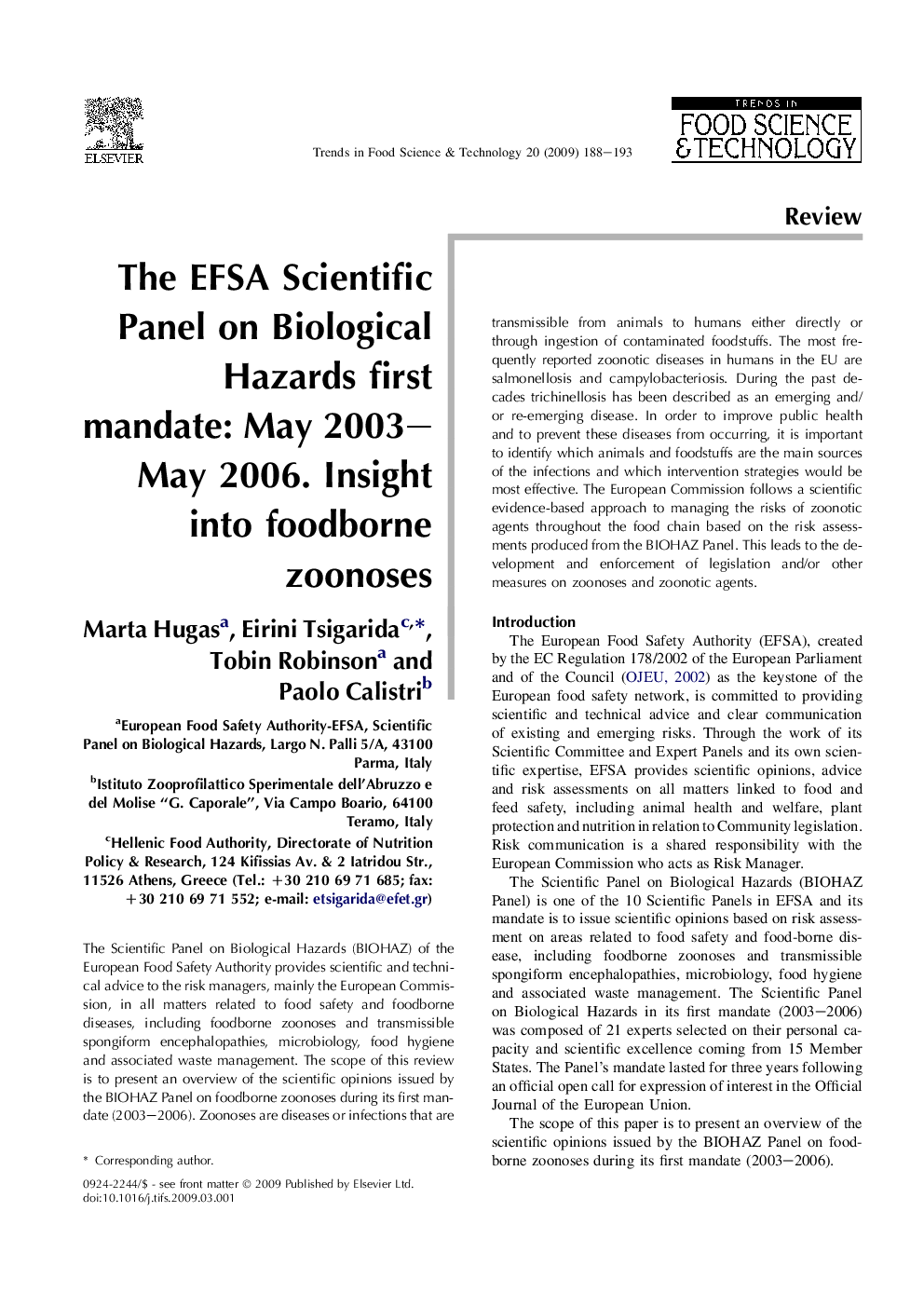| Article ID | Journal | Published Year | Pages | File Type |
|---|---|---|---|---|
| 2099910 | Trends in Food Science & Technology | 2009 | 6 Pages |
The Scientific Panel on Biological Hazards (BIOHAZ) of the European Food Safety Authority provides scientific and technical advice to the risk managers, mainly the European Commission, in all matters related to food safety and foodborne diseases, including foodborne zoonoses and transmissible spongiform encephalopathies, microbiology, food hygiene and associated waste management. The scope of this review is to present an overview of the scientific opinions issued by the BIOHAZ Panel on foodborne zoonoses during its first mandate (2003–2006). Zoonoses are diseases or infections that are transmissible from animals to humans either directly or through ingestion of contaminated foodstuffs. The most frequently reported zoonotic diseases in humans in the EU are salmonellosis and campylobacteriosis. During the past decades trichinellosis has been described as an emerging and/or re-emerging disease. In order to improve public health and to prevent these diseases from occurring, it is important to identify which animals and foodstuffs are the main sources of the infections and which intervention strategies would be most effective. The European Commission follows a scientific evidence-based approach to managing the risks of zoonotic agents throughout the food chain based on the risk assessments produced from the BIOHAZ Panel. This leads to the development and enforcement of legislation and/or other measures on zoonoses and zoonotic agents.
